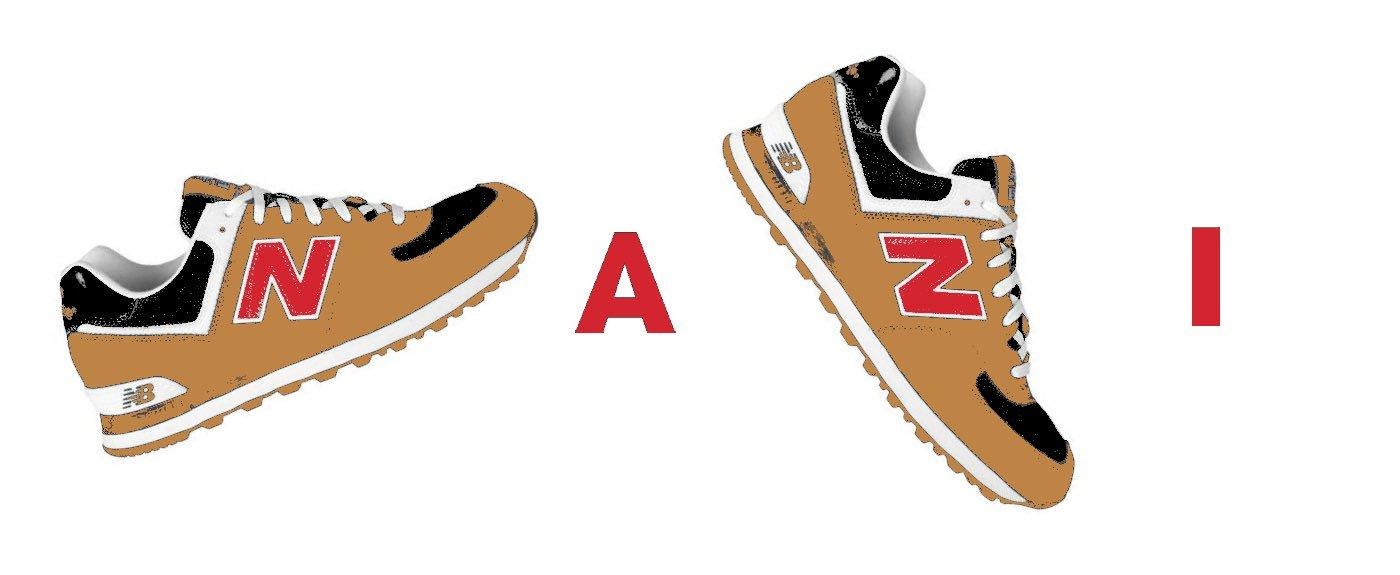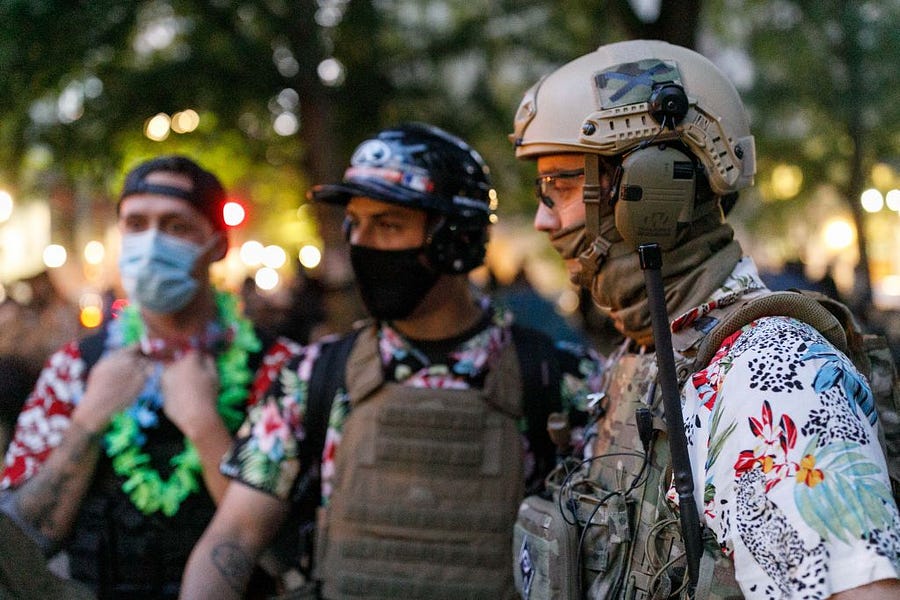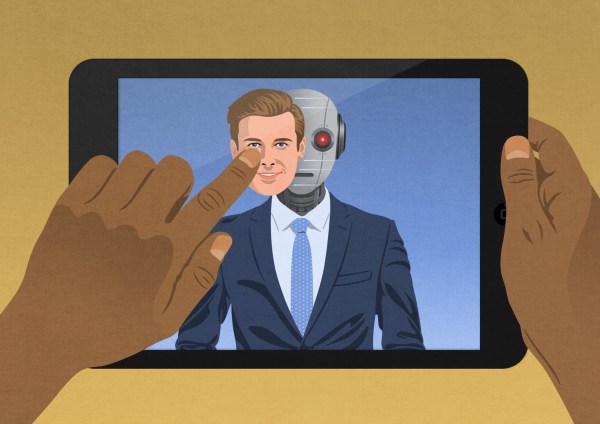Since its founding, Black Rifle Coffee has branded itself as coffee for tough guys, associating itself with Second Amendment advocacy, pro-police activism, and veterans’ issues.
“We develop our explosive roast profiles with the same mission focus we learned as military members serving this great country and are committed to supporting veterans, law enforcement, and first responders,” promises the company’s website.
The company, based in Salt Lake City, Utah, gained new visibility in 2017 when, after Fox News host Sean Hannity defended accused child molester (and GOP Senate candidate) Roy Moore, Keurig coffee pulled its advertisements from Hannity’s show. This prompted Donald Trump Jr. to endorse Black Rifle on his Twitter account.
But those kinds of endorsements can work both ways. Black Rifle Coffee found itself the subject of unwanted attention recently when Kyle Rittenhouse was spotted wearing a T-shirt touting the brand. Rittenhouse had just posted bail; he’d been in jail since October 30 after being charged with killing two people and injuring one other when a protest in Kenosha, Wisconsin, turned violent last August.
BRCC tried to distance itself from Rittenhouse, making clear it had no business association with the teenager.
“We’re not in the business of profiting from tragedy,” CEO Evan Hafer said in a video message addressing the controversy. “We have zero interest in collecting one dollar from any of this—it is ethically inappropriate for us to do so or even give the perception,” said Hafer.
But Hafer’s attempt to distance the company from an alleged gunman earned him some new enemies: Rittenhouse supporters who believed the company was capitulating to political correctness. This included the right-wing paramilitary group the Proud Boys, who accused the company of trying to cater to “genderless college students.”
Black Rifle Coffee’s struggle is hardly unique. Other companies have experienced similar scenarios since the rise of the alt-right in the last five years. Just look at what happened to Depeche Mode.
In February 2017, white supremacist Richard Spencer had called Depeche Mode the “official band of the alt-right” while speaking outside of the Conservative Political Action Conference in Washington, D.C.
That was news to the bandmates.
“My phone kept ringing and ringing,” lead singer Dave Gahan, told the New York Post. “I had to tell everyone, ‘No, we’re not the official band of the alt-right.’”
“I could understand some commie jumping on us because of our history and working-class background,” Gahan told The Post. “But this was ridiculous.”
The band soon issued a statement distancing itself from Spencer and denouncing his views. Spencer was unmoved by the rejection from one of his favorite bands, tweeting “Depeche Mode has already written all the anthems the #AltRight needs.”
Therein lies the frustration for companies and public figures who find themselves involuntarily tied to controversial figures. Their denials and protestations often fall on deaf ears.
Pop icon Taylor Swift started getting the racist appropriation treatment as early as 2016, when alt-right website the Daily Stormer began featuring articles like “Aryan Goddess Taylor Swift: Nazi Avatar of the White European People,” and “Taylor Swift, Avatar of European Imperialism.”
In turn, a progressive publication called PopFront accused Swift’s song “Look What You Made Me Do” of playing to a “subtle, quiet white support of a racial hierarchy.”
Swift’s attorneys got involved, drafting a letter calling PopFront’s article “a malicious attack against Ms. Swift that goes to great lengths to portray Ms. Swift as some sort of white supremacist figurehead, which is a baseless fiction masquerading as fact and completely misrepresents Ms. Swift.”
Sometimes, though, public figures actually do make politically tinged statements that bring endorsements from undesirable groups. That’s what happened in 2017 when Papa John’s CEO John Schnatter blamed national anthem protests by NFL players for sinking pizza sales — the Daily Stormer rushed to declare Papa John’s “the official pizza of the alt-right.”
The company was shocked by the endorsement and immediately tried to distance itself from it.
“We condemn racism in all forms and any and all hate groups that support it,” Peter Collins, then-senior director of public relations at Papa John’s, told the Louisville Courier-Journal. “We do not want these individuals or groups to buy our pizza.”
A Papa John’s spokesperson did not respond to a request to comment for this story.
In 2016, the Daily Stormer deemed New Balance the “Official Shoes of White People” after the company’s VP of Public Affairs, Matt LeBretton, said “things are going to move in the right direction” during a Trump presidency. LeBretton has also said the Obama administration “turned a deaf ear” to New Balance in pursuing the Trans-Pacific Partnership, a free trade agreement that critics argued would hurt American companies.
Not only did neo-Nazis start to endorse New Balance, but Trump opponents also began filling their social media feeds with photos of New Balance shoes lit on fire or thrown in the trash.
The company quickly began to contain the damage, pointing out that LeBretton was simply discussing Trump’s position on TPP. The company’s opposition to TPP was shared by progressives like Sens. Bernie Sanders and Elizabeth Warren.
In a tweet, New Balance said the company “does not tolerate bigotry or hate in any form.”
“As a 110-year old company with five factories in the U.S. and thousands of employees worldwide from all races, genders, cultures and sexual orientations, New Balance is a values-driven organization and culture that believes in humanity, integrity, community, and mutual respect for people around the world,” the company wrote.
The first response to the apology tweet features two New Balance shoes with the “Ns” turned to represent the “N” and “Z” in “Nazi.”

Representatives for New Balance did not respond to requests to comment.
Perhaps the most notable example of neo-Nazi brand appropriation took place when white supremacists adopted Pepe the Frog as their mascot.
In 2005, aspiring comic book writer Matt Furie created a character named Pepe the Frog as a part of his subversive Boy’s Club series of comics. One frame of the comic featured Pepe urinating in a toilet with his pants all the way down to his ankles, the way a 3-year-old would. While relieving himself, Pepe utters the phrase “Feels good man.”
Soon, Pepe made his way to the notorious website 4chan, where users would use the frog as a meme to describe their feelings, whether they “felt good” or felt sad. At one point, pop star Katy Perry tweeted a Pepe meme to express how tired she was after a trip to Australia.
But soon, the Pepe meme morphed into a way 4chan’s anonymous users could repel “normies,” whom they didn’t want using the site. User-created images of Pepe as a Nazi or terrorist began flooding the site, attracting white supremacists, who soon claimed Furie’s creation as their own. The Anti-Defamation League subsequently added Pepe to its list of white supremacists symbols.
The Pepe phenomenon was given a dose of steroids when the Trump campaign willfully associated itself with the offensive memes featuring the frog. In 2015, Trump himself tweeted a photo of Pepe wearing a Trump wig; in 2016, Donald Trump Jr. posted a photo of “The Deplorables” on Instagram, one of which was Pepe, right there next to his father. Spencer vigorously embraced Pepe as the alt-right’s mascot. In a famous video of Spencer being punched in the face on Trump’s inauguration day in 2017, Spencer had just begun explaining to a reporter what the special meaning of Pepe is to the white nationalist movement.
And as the transformation of Pepe took place, Furie looked on in horror.
In the beginning, “I was all proud of myself, strutting down the street,” Furie told filmmaker Arthur Jones in the recently released documentary Feels Good Man. “Now I’m just slithering down the street in a pool of my own waste, or something. Just a slurping slimeball.”
At one point, Furie purchased $45,000 worth of Pepe T-shirts to sell, but he can’t even give them away to thrift stores because he is horrified at the prospect of white supremacists proudly wearing them. Unable to rehabilitate Pepe’s image, Furie killed the frog off in a comic—but by that point, he’d effectively lost control of Pepe’s image. Furie would go on to sue InfoWars’ Alex Jones, who had been using a Pepe image to sell posters. (Jones used the lawsuit to increase the price of the posters—eventually, InfoWars settled with Furie.)
Furie’s attorneys estimate they have issued between 75 and 100 successful legal challenges halting the unauthorized use of Pepe. But the damage remains: Despite his best efforts, Furie will forever be associated with a toxic symbol of white supremacy.
The ability of racist and extremist factions to infiltrate society through social media and other means has also spoiled actions that, until just years ago, nobody considered to be controversial.
For instance, as racial strife spread throughout America this spring and summer, an armed far-right anti-government group known as the Boogaloo Boys adopted Hawaiian shirts as their official uniform.
“As a fat guy I take this extremely personally,” tweeted Washington Post reporter Dave Weigel at the news of the Hawaiian shirt takeover. “This is the shirt of my people.”
In 2017, a Wisconsin-based company that made Tiki torches was forced to issue a statement distancing itself from the white supremacist-led marches in Charlottesville, Virginia, that summer. Some Americans are now afraid to wear the red baseball hats of their favorite Major League teams lest someone mistake it for a “Make America Great Again” cap.
Progressive activists are only too happy to pile on. In just the past few months, they have declared the following to be indicators of “white supremacy”: Referring to classical music composers by their last names, modern architecture, Roman statues, being on time, Tom Brady’s popularity, horse mascots, and the Kardashians.
With both extremes willingly taking part in this plot to stake out territory, it remains to be seen whether anything enjoyable will be left untainted by grievance politics. If this continues, we may eventually see brands actively trying to associate their competitors with white supremacists across the dark corners of the internet—if you see a 4chan user praising Pizza Hut’s “supreme” toppings, there may be a Papa John’s IP address behind it. It would be as if political campaign staffers crossed their fingers, praying for the day their opponent was endorsed by David Duke.
Until then, brands will have to prepare for the day that extremists commandeer their good names. Association with these groups can do lasting damage to historical and beloved U.S. institutions.






Please note that we at The Dispatch hold ourselves, our work, and our commenters to a higher standard than other places on the internet. We welcome comments that foster genuine debate or discussion—including comments critical of us or our work—but responses that include ad hominem attacks on fellow Dispatch members or are intended to stoke fear and anger may be moderated.
With your membership, you only have the ability to comment on The Morning Dispatch articles. Consider upgrading to join the conversation everywhere.